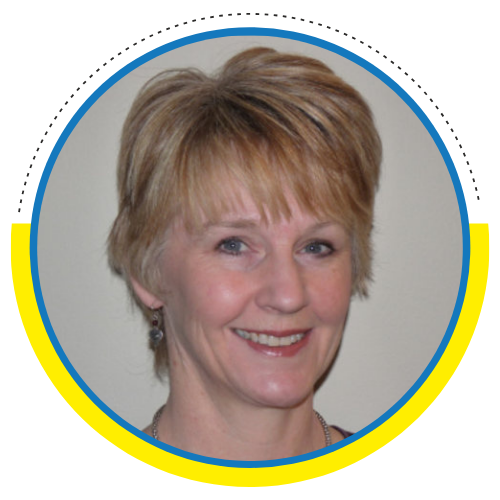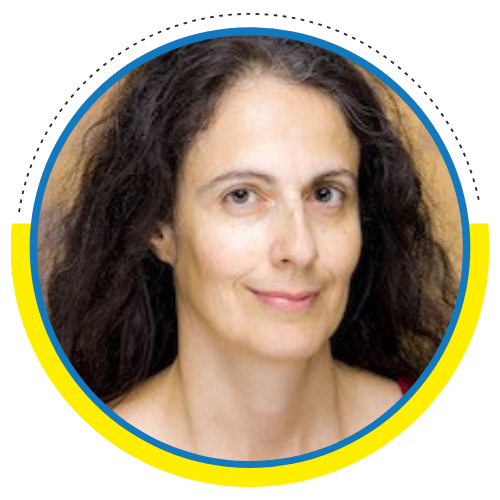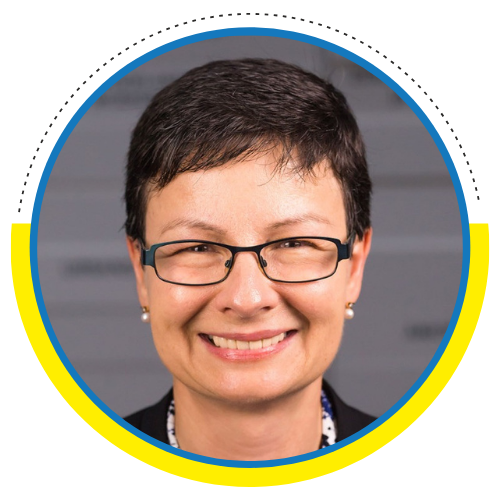Meet the 2024-25 Learning and Teaching Grant Recipients
The Learning and Teaching Grants (LTG), funded by the Office of the Provost and Vice-President, Academic, reflects the University’s continuing commitment to teaching excellence and pedagogical leadership, along with our community’s ongoing dedication to equity, diversity, inclusion, and accessibility (EDIA) in the classroom.
With a focus on fostering projects that implement evidence-informed pedagogical methods that will have a long-term impact on the undergraduate and graduate student experience, the LTG program works to elevate the University’s profile as an educational leader.
Every year, The Centre encourages members of the TMU community to submit proposals that explore new and emerging evidence-informed pedagogical methods that create engaging student-centered learning opportunities and will also have a long-term impact on the student experience.
Priority areas of focus can include:
- First Year Experience
- Universal Design for Learning and Open, Inclusive Pedagogies
- Internationalization and Global Learning
- Experiential Learning
- Digital Learning & Educational Technology
- Indigenous Initiatives and Decolonization
- Black Studies Curriculum and Pedagogy
- Student Mental Health and Wellbeing
Meet this year’s Cohort
The Centre for Excellence in Learning and Teaching is excited to announce the recipients of this year’s Learning and Teaching Grants:

Susan Bookey-Bassett, Assistant Professor, Daphne Cockwell School of Nursing
Engaging Patients and Family Caregivers in Co-designing Health Professions Education for Integrated Stroke Care for Older Adults from Vulnerable Populations
This project employs a community-engaged co-designed approach to develop, implement and evaluate an experiential learning activity for health professions students that will specifically address the intersection of EDI with interprofessional practice enabling students to apply and practice relevant skills to promote access to equitable and culturally appropriate stroke care. Learning activities will include direct engagement with stroke patients, family caregivers, and members of the interprofessional stroke team, reflective case studies, and creation of an aesthetic piece.
Sue Bookey-Bassett obtained her bachelor of science in nursing from the University of Toronto and a master of education from Brock University. Bookey-Bassett completed her PhD in nursing at McMaster University’s Aging Community and Health Research Unit in 2018. Her doctoral work involved the development and feasibility testing of an interprofessional education intervention to support collaborative practice in the home care sector. She also completed a certificate program on educating health professionals in interprofessional care (EHPIC) through the University of Toronto Centre for Interprofessional Education in 2013.
Bookey-Bassett has held numerous numerous practice, education and research roles across health care and academic institutions. She has expertise in designing, delivering and evaluating education programs for health professions students and practicing health care professionals. Her nursing clinical background is in perinatal and neonatal nursing.
Bookey-Bassett’s program of research relates to interprofessional education (IPE) and collaboration within and across all health sectors. Current work focuses on exploring the role of IPE in care transitions and integrated models of care.
Dr. Sherry Espin, RN, PhD, Daphne Cockwell School of Nursing, Danielle Moed, MA, Education Developer, Experiential Learning, CELT

Jennifer Lapum, Associate Director, Quality Assurance and Professor, Daphne Cockwell School of Nursing
Eyes and ears assessment for the nursing professional
We plan to create and evaluate an open educational resource (OER) including two chapters focused on nursing assessment of the eyes and ears. Using a learner-centred design and interactive pedagogy, this OER will be co-curated by faculty and students to promote critical thinking in health assessment. What makes this resource unique is the OER’s guiding framework is an inclusive approach to health assessment and application of content in culturally-responsive ways. This resource will be part of an open textbook in a year-one course with over 600 students in the Toronto Metropolitan Centennial George Brown Collaborative program.
I am a Registered Nurse with clinical background in critical care nursing particularly in intensive care (including the cardiovascular intensive care unit). I am keenly interested in issues surrounding patient-centred care, empathy, and compassion within technologically-dominated environments of care. My program of research is focused on ensuring that the 7,024th patient does not feel like the 7,024th patient. I have an arts-based and narrative program of research and use media such as poetry, visual images, installation art, dance, and music to facilitate knowledge translation and a deep understanding of illness and human experiences within my research and teaching pedagogy. I also have extensive expertise in designing and producing open educational resources.
Please contact me if you are interested in research collaboration or graduate studies with a focus on arts-based and narrative methodologies. My work is published in journals including: Social Science & Medicine, CMAJ, International Journal of Whole Person Care, Journal of Palliative Medicine, Journal of Medical Humanities, Qualitative Health Research, Heart & Lung, International Journal of Qualitative Methods, Qualitative Inquiry, Nurse Educator, Forum: Qualitative Social Research, British Journal of Nursing, European Journal of Cardiovascular Nursing and Allied Professions.
Co-lead: Nadia Prendergast, Daphne Cockwell School of Nursing
Co-investigators the Daphne Cockwell School of Nursing at TMU (including 8 Student Leads): Raquel Lashley-Traumbulo, Erin Ziegler, Lisa Nadurata, Hasina Amanzai, Leinic Chung-Lee, Caitlin Cosgrove, Evan Accetola, Lathania Lewis, Tayiba Rahman, Farhad Rashidi, Khalila Campbell, Tolulope Adegboye, Linegarole Manigat
Nada Savicevic, CELT and The Chang School

Jennifer Poole, Associate Professor, School of Social Work
What we want you to know about grief: Digital stories for critical grief pedagogy
These are grief-saturated times on our campus, but there are still not enough opportunities to learn with and from that grief, learning that can create community, augment wellbeing, and transform pedagogy. In response, we would like to invite 12 students, staff, and educators at TMU to make digital grief stories. Such stories are short first person films, novel and research-based ways of expressing and learning from loss and grief that can generate deeper understanding and more inclusive pedagogy. Working with ReVision, a world renowned centre for digital storymaking, we anticipate change-making impacts for the storytellers, the team, our campus, grief literacy and critical grief pedagogy more widely.
Jennifer (Jen) Poole (she/her) is a white settler. She is also an associate professor at TMU’s School of Social Work where her work sits in the confluence of madness and grief. She grounds herself in approaches that challenge colonialism, white supremacy and carcerality and those that center connection, co-creation, access and justice. Her research is always collaborative, with current projects focusing on disenfranchised loss and grief, sanism(s) and the interruption of colonialism in education. Past projects have focussed on precarious work and health, transplantation, how mental health is disciplined in the helping professions and critical analyses of mental health recovery. A published poet, she loves to teach/learn, supports graduate students at multiple universities and has long been involved in community mutual aid initiatives.
Carmen Galvan, Instructor, School of Disability Studies
May Friedman, professor, School of Social Work

Krystal Nunes, Assistant Professor, Department of Chemistry and Biology
Choose your own adventure: Reimaging virtual science labs to encourage student autonomy and exploration
Failure is a key aspect of scientific exploration and innovation, yet undergraduate science students are often not provided opportunities to engage with and learn from lab-based failures. To allow students to experience failures in a safe and controlled environment, we will develop two virtual labs that explore critical competencies for first-year biology and chemistry students. These labs will employ a “choose your own adventure” format to create space for exploration and hypothesis-testing. Further, this work aims to address inequities in existing laboratory experience and foundational knowledge that may disproportionately affect those students from rural communities and/or lower socioeconomic background.
I am an Assistant Professor in the Department of Chemistry and Biology at Toronto Metropolitan University. My research is in the field of pedagogy, specifically investigating the importance of failure in the learning process of undergraduate students. The overarching goal of this work is to support STEM students in becoming self-regulated, resilient scientists.
Dr. Shawn McFadden, Department of Chemistry and Biology

Enza Gucciardi, Graduate Program Director and Professor, School of Nutrition
Anti-black Racism in Dietetic Practice
We plan to create an interactive, open-access virtual module about Anti-Black Racism (ABR) in Canadian Dietetics using Pressbook. Students will have the opportunity to critically reflect on their intersectionality, experiences of power and oppression, their implicit bias and how they may be perpetuating these structures. Students will explore potential strategies to unlearn and combat ABR by becoming familiar with the language and definitions to participate in conversations, in reflective activities with practice-specific examples and having links to relevant resources.
Enza Gucciardi PhD is a professor in the School of Nutrition at Toronto Metropolitan University. She has an undergraduate degree in Nutritional Sciences from Toronto Metropolitan University, a Masters degree in Community Health and Epidemiology from the Department of Public Health Sciences and a PhD from the Institute of Medical Sciences, both from the University of Toronto.
Dr. Gucciardi's program of research addresses the current challenges of delivering effective self-management support to the increasing population of Canadians with diabetes, or at risk for diabetes. She primarily focuses on diabetes self-management practices, the participation and delivery of diabetes self-management education and support programs, and the use, coordination and integration of diabetes management resources and services across the health care system. She also examines the intersection of food insecurity and diabetes self-management, developing screening tools and other strategies for care provider to better support self-management among this vulnerable population. Dr. Gucciardi adopts an interdisciplinary approach and uses mixed methodologies in her research.

Karen Arthurton, Contract Lecturer, School of Social Work
Improving Equity, Diversity, Inclusion and Accessibility in Simulated Learning within the Live Actor Simulation Program
This project will ensure that the Live Actor Simulation (LAS) program, a key modality for Experiential Learning at TMU, adheres to high standards for Equity, Diversity, Inclusion and Access (EDIA), and more accurately reflects the experiences of marginalized and equity-deserving groups. By creating an applicable, scholarly framework for EDIA in
simulation, working closely with LAS staff, soliciting feedback and guidance from faculty and students, and analyzing our results, we will not only review and revise our existing catalogue of simulations, but create new ones to address identified gaps.
Roxanne Wright, Manager, Experiential Learning and Live Actor Simulation at the Experiential Learning Hub, CELT

Claustre Bajona, Associate Professor, Department of Economics
Back to Practice - A Flipped-Classroom Approach to Teaching First-Year Mathematics for Economics
This project flips the classroom in a core first-year mathematics course. Students in the course have very different backgrounds and learning styles. Traditional teaching methods create anxiety and lack of motivation in learning. Most students, including Indigenous and international students, find the transition from high school to university mathematics specially challenging. To address these challenges, we propose a redesigned course that is student-centered, puts the emphasis on application and peer learning and emphasizes active learning.
Dr. Claustre Bajona received a B.Sc. in Mathematics from the Universitat de Barcelona in 1991, an M.A. in Economics from the Universitat Autonoma de Barcelona in 1993, and a Ph.D. in economics from the University of Minnesota in 2000. Her research interests are in the areas of Macroeconomics, International Trade, Economic Growth and Economic Development.
Hakan Toksoy, Department of Economics
To learn more about the Learning and Teaching Grant Program, visit the program page, or email the Centre for Excellence in Learning and Teaching at teachingcentre@torontomu.ca.